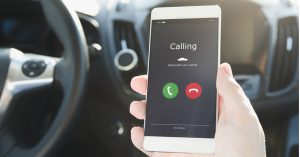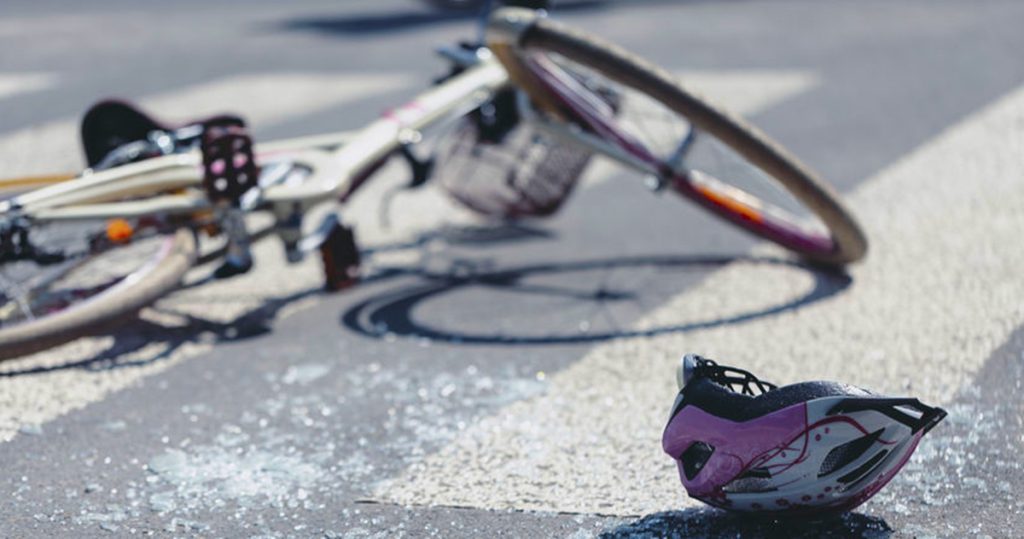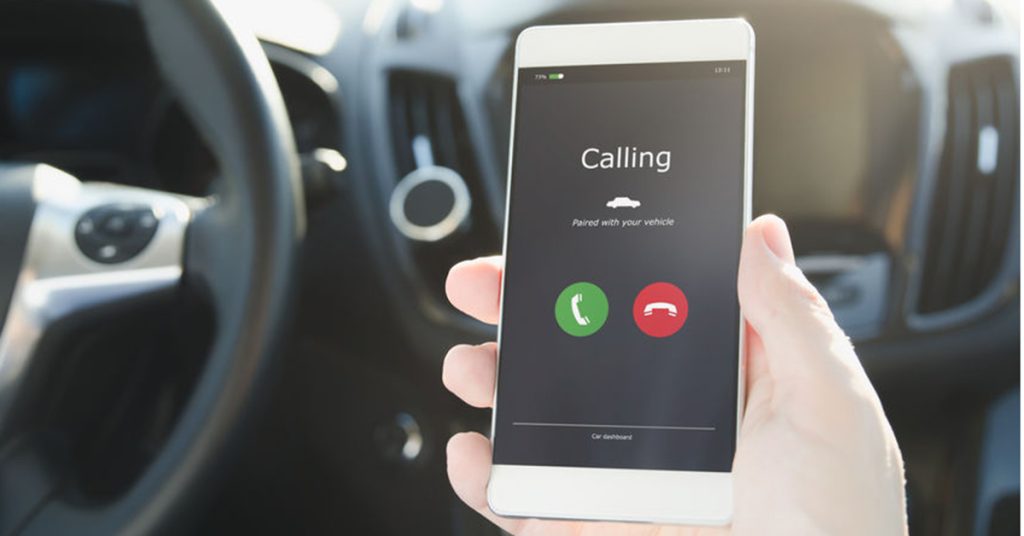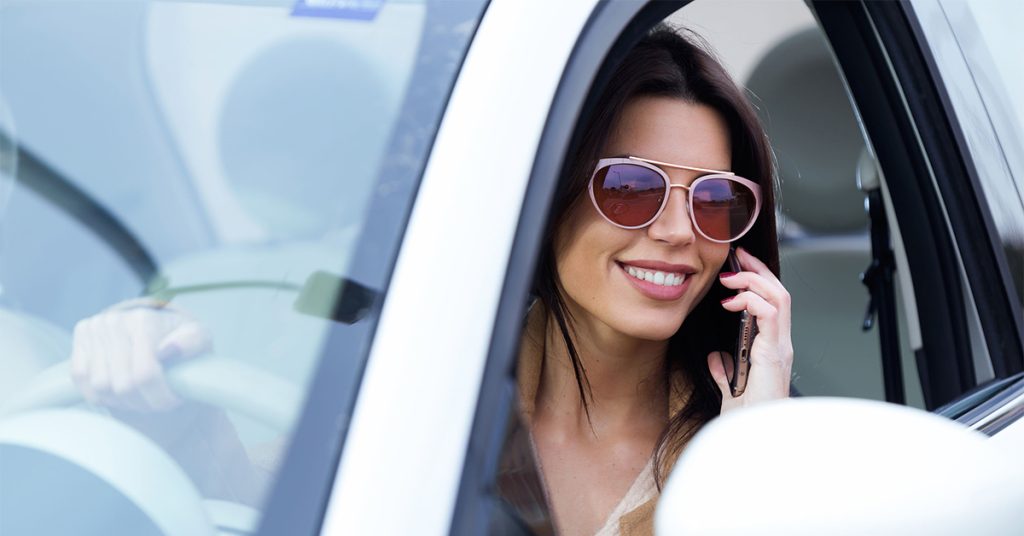Posts Tagged ‘Massachusetts hands-free cell phone law’
Distracted Driving Accidents Have Seriously Injured Cyclists in Massachusetts, Pennsylvania and Florida

Over the past year, distracted driving accidents have seriously injured cyclists in Massachusetts and other states.
During the past few months, you may have noticed more bicyclists and fewer cars out. Massachusetts bike shops have confirmed that sales are way up since the COVID-19 emergency began. And during an uncertain time, it has been nice to see people enjoy bikes.
But now, as Massachusetts slowly re-opens the economy, driving patterns are changing again. More cyclists are out, but increasingly, so are cars. Coincidentally, traffic laws have also changed. As of April 1st, the Massachusetts hands-free driving law took effect, banning all hand-held cell phone use. Going forward, drivers must connect to voice-activated technology.
This is an important new law for cyclists, who often travel to the immediate right of a vehicle in the bike lane or roadside. When a driver doesn’t pick up a phone, this takes away an unexpected movement, a layer of danger to cyclists.
But several other layers remain. The reality is many drivers do not even realize cyclists are nearby. But cyclists are close and are vulnerable to your quick, unpredictable movements, such as when you pick up a cell phone, reach into your glove compartment or open a fast-food bag as you drive. Or when you tend to your children or other passengers.
If you are a Massachusetts driver, now is the time to set up your vehicle for hands-free cell phone use. Commit to follow the new law and drive safely.
Also commit to check for cyclists. When you stop at a traffic light or stop sign, check in front of you, to each side and behind you. Bicycle accidents often happen because cyclists are approaching from behind cars. Many drivers neglect to look there. Drivers are less likely to look if they are focused on their cell phone or texting while driving.
Many communities are expanding sidewalks or changing traffic patterns to make room for social distance. This means you may encounter cyclists in new areas. Approach slowly, with caution and patience.
Recent Cases: Distracted Driving Accidents and Injuries to Cyclists
Over the past year, there have been several news stories about distracted driving, leading to cyclist injuries and deaths. Even as states such as Massachusetts and Maine have strengthened laws, the number of distracted accidents continues to rise.
Ipswich Texting While Driving Crash Kills Cyclist
On March 26th, just days after the Massachusetts stay at home advisory took effect, there was a tragic crash on an Ipswich Road. According to the The Boston Globe, a 43-year-old driver fatally struck a cyclist in the North Shore community, also injuring two other family members on bikes. Ipswich Police and the Essex County District Attorney’s office announced the driver has been cited for motor vehicle homicide by negligent operation, marked lanes violation and composing, sending and reading an electronic message. A clerk magistrate will decide whether a criminal complaint will be issued.
Pennsylvania Driver Accused of Texting in Cyclist’s Death
In April 2019, a Pennsylvania woman was accused of texting while driving. Penn Live, a local news website, reported she struck a male cyclist in Mount Joy Township. Forensic analysis determined she had sent a text message a minute before the crash. She received a message, then tried to call 911, as a neighbor also called in.
The cyclist died from multiple traumas nine days later. In this case, the driver was charged with felony homicide by vehicle, misdemeanor involuntary manslaughter, and cited with traffic citations in the crash, according to Penn Live.
Florida Distracted Driving Case Ends in Fine, Community Service
In January 2020, a Florida woman pleaded no contest in a fatal crash which killed two cyclists and seriously injured several others. In November 2018, the woman had struck the group of 14 cyclists with her vehicle. They were members of a local bicycle club riding in Davie, a community in Broward County.
According to the Sun Sentinel newspaper, the woman admitted to reaching into her glove compartment for her cigarettes. She also said she was temporarily blinded by sun glare. Police allege the woman was also traveling 70 mph on a 55 mph road when she struck the cyclists. This was a horrific crash and many involved were deeply upset with the outcome. In this case, local prosecutors maintained the woman’s actions did not warrant a criminal charge of motor vehicle homicide, according to the Sun Sentinel. So the driver pleaded no contest to careless driving, leaving court with orders to pay a $1,000 fine and complete 120 days of community service. She also lost her driver’s license for six months.
Free Legal Consultation
Boston Bicycle Accident Lawyers – Distracted Driving Injuries to Cyclists
At Breakstone, White & Gluck, our Boston bicycle accident attorneys have more than 100 years combined experience. We represent cyclists and others who have been injured by distracted driving, including a driver’s negligent use of a cell phone.
Distracted driving accidents can seriously injure cyclists. We urge you to act right away if you suspect a driver’s cell phone use may have caused your injuries. If you or a loved one was injured, it is important to consult an experienced lawyer to learn your rights. You may be entitled to pursue financial compensation for your medical bills, lost wages, pain and suffering and other financial losses.
For a free legal consultation, contact Breakstone, White & Gluck at 800-379-1244 or 617-723-7676. You can also use our contact form.
Massachusetts Hands-Free Law Update: Fines Can Begin April 1, 2020

The Massachusetts hands-free driving law bans this action. Fines start today, April 1, 2020.
As of today April 1, Massachusetts police departments can start to issue citations and fines to drivers who violate the Massachusetts hands-free driving law. We encourage you to follow the Massachusetts COVID-19 “Stay at Home” advisory. But if you have to go out, you can help yourself drive more safely and avoid a fine by checking that your car is set up for hands-free mode. Even better? Read this update, but turn off your cell phone while driving. Many of us are exhausted and out-of-routine. Focus on the roads and what you need to get done, so you can get back home.
So far, many drivers are still picking up phones, despite the new law. During the initial grace period from Feb. 23-Mar. 31, police issued 4,500 written warnings across Massachusetts, according to a state official interviewed by WGBH. The official said drivers must become aware of both the law and that police are watching.
“…the police officers I’ve talked to seem to say that everyone who is pulled over says, “Yes, I’ve heard about it. Sorry. My mistake,” said Jeff Larason, director of highway safety at the Massachusetts Executive Office of Public Safety. (Listen to the WGBH segment in full).
Massachusetts passed a texting while driving law in 2010 but lawmakers spent nearly 10 years debating the handheld cell phone ban.
The Massachusetts hands-free driving law was passed by the Massachusetts Legislature in November 2019 and quickly signed by Gov. Charlie Baker on Nov. 29. To help drivers get ready, the state granted an initial grace period. Larason told WGBH 4,500 drivers had received written warnings (broadcast date: March 13). The Boston Globe reported State Police had issued 578 warnings to drivers, in just the first week. On Cape Cod, local police reported 150 verbal or written warnings in the first week (Source: South Coast Today via Cape Cod Times).
What the law allows and bans:
- The law states drivers cannot use any electronic device, including mobile telephones, unless the device is being operated in hands-free mode.
- Drivers can only touch cell phones and mobile phones once to activate hands-free mode.
- Cell phones must be properly mounted to the windshield, dashboard or center console and not impede with operation. This is the only way drivers are allowed to use GPS or voice to text technology such as Bluetooth.
- Drivers are specifically not allowed to touch phones for texting and emailing. Use of apps, video or Internet is also prohibited.
- Drivers who are 18 and younger are not allowed to use cell phones behind the wheel. Hands-free is illegal and can result in violation of their Massachusetts Junior Operator’s License.
- You may be stopped. But you are not allowed to pick up your phone at red lights or stop lights.
- You can pick up your cell phone and make a call if you are in a stationary position, outside a travel lane or bicycle lane.
- There is also an exemption for emergency professionals who need to pick up the phone for calls and those calling 911. 911 calls must be taken seriously. The state advises drivers to make every attempt to pull over before calling 911 – even if you are in hands-free mode.
Violations of the Massachusetts Hands-Free Driving Law
Police in Massachusetts can now start issuing tickets. Here are the penalties:First offense: $100 fine.
Second offense: $250 fine and distracted driving education.
Third offense: $500 fine and distracted driving education.
With a third offense, you may face an insurance surcharge.
Related:
Massachusetts hands-free driving law, Mass.gov
Breakstone, White & Gluck – Boston Personal Injury Lawyers: 800-379-1244
With more than 100 years combined experience, Breakstone, White & Gluck specializes in representing plaintiffs in personal injury cases involving car accidents, truck accidents, pedestrian accidents and bicycle accidents. Our attorneys have extensive experience handling cases for clients injured by negligent use of cell phones and texting while driving. We represent clients across the state of Massachusetts in car accident cases, including in Boston, the North Shore, the South Shore and Cape Cod.
We are open and working remotely for our clients during the state’s COVID-19 advisories. If you have been injured, we are providing free legal consultations at 800-379-1244 or 617-723-7676. You can also use our contact form.
Massachusetts Passes Hands-Free Driving Law
 Massachusetts has finally approved distracted driving legislation. Gov. Charlie Baker signed on Monday, establishing New England as a hands-free driving zone.
Massachusetts has finally approved distracted driving legislation. Gov. Charlie Baker signed on Monday, establishing New England as a hands-free driving zone.
According to The Boston Globe, the new distracted driving law will take effect on Feb. 23, 2020. Massachusetts police officers will issue warnings until the end of March, then citations will begin. This transition period is meant to help drivers get used to the new law. Become familiar with Bluetooth and other “hands-free” technologies now, and if you plan to use an electronic device for navigation, purchase a mount for your windshield or dashboard.
Until now, most drivers have been able to pick up cell phones to talk in Boston and across Massachusetts. However, under the 2010 texting while driving ban, drivers cannot text, read emails or use social media. This has helped deter some drivers, but overall, not enough without a handheld cell phone ban.
Come next year, Massachusetts drivers can only use cell phones under limited circumstances. Drivers can use electronic devices on “hands-free” mode (though they do get a single-swipe to activate or de-activate the “hands-free” mode). As we mentioned, they must use Bluetooth or a similar “hands-free” technology and mount navigation devices.
Police officers can stop drivers as a primary offense, which is more leeway than they have in enforcing seat belt use. Officers will be required to collect data – including age, race and gender – when they issue a warning or citation. The state will use this data to monitor potential racial profiling by police departments.
The new Massachusetts distracted driving law brings notable consequences. These alone are good financial motivators for putting down your cell phone.
Under the new law, drivers will be fined $100 for the first offense, $250 for the second offense and $500 for the third offense (and any subsequent offense). Second-offenders have to participate in a driver safety course. Drivers can also face an insurance surcharge.
Safety is the most important point. Cell phone use is responsible for more than 1 of 4 car crashes, according to the National Safety Council. Distracted drivers killed 3,166 people across the U.S. in 2017, according to the National Highway Traffic Safety Administration. These are hard numbers to hear.
Massachusetts now joins every other New England state in improving hands-free cell phone legislation. Maine was the last state to approve legislation this past summer. According to the National Conference of State Legislature, 20 states already have laws which ban handheld cell phone use, so Massachusetts could be the 21st.
Read the law: AN ACT REQUIRING THE HANDS-FREE USE OF MOBILE TELEPHONES WHILE DRIVING, 2019 Mass. Acts 122
Boston Car Accident Lawyers – About Breakstone, White & Gluck
At Breakstone, White & Gluck, our Boston car accident lawyers have over 100 years combined experience and provide expert investigation into car crashes involving negligent cell phone use. We represent clients who have been injured by negligent driving across Massachusetts, including in Boston, Cambridge, Somerville, Quincy and Braintree. South of Boston, our attorneys have represented numerous clients, including those injured in Brockton, Plymouth and Cape Cod, as well as in Framingham, Worcester and north of Boston, Salem, Peabody, Newburyport and Saugus.
If you have been injured, learn your legal rights. Call 800-379-1244 or 617-723-7676 or use our contact form.
Hands-Free Cell Phone Law Proposed in Massachusetts

Hand-held cell phone use would become illegal under new legislation proposed by the Massachusetts’ governor’s office.
Many of us expected Gov. Charlie Baker and Lt. Gov. Karyn Polito would file legislation to limit drivers to hands-free cell phone use this year. But the Baker-Polito Administration went much further last week when it filed, “An Act Relative to Improving Safety on the Roads of the Commonwealth.” In announcing the legislation, the administration reported more than 15,000 people were seriously injured in Massachusetts traffic accidents between 2012 and 2016. Another 1,820 people were killed, including 14 road workers.
The Massachusetts Legislature now has a great deal to consider in coming months. Because these proposals will impact us all, we encourage you to follow the media coverage and share your thoughts with your local legislators and town officials.
Cell Phones. In 2010, Massachusetts banned texting while driving. There have been similar proposals, but no action on handheld cell phones. Meanwhile, distracted driving accidents have increased, claiming 3,450 lives in 2016, according to the NHTSA.
The Baker-Polito proposal would require drivers who use electronic devices to go “hands-free” and make use of hands-free driving equipment, such as Bluetooth. Drivers would have to use voice commands instead of reaching for hand-held cell phones. The proposal does allow “a single tap or swipe to activate, deactivate or initiate hands-free mode.”
If this proposal is approved, Massachusetts would be the 16th state to have a hands-free cell phone law, joining all the New England states.
Primary Seat Belt Enforcement. According to the GHSA, 34 states have primary seat belt laws for drivers and front-seat passengers.
Massachusetts has a secondary seat belt law, meaning police officers cannot simply pull a motor vehicle over for a seat belt violation. A police officer must first observe another moving violation, such as speeding or running a red light.
A primary enforcement law for seat belts has been a hard sell in Massachusetts. But we urge you and your family to use the debate as a reminder to wear a seat belt every time you ride. According to the NHTSA, seat belts saved an estimated 14,668 lives in traffic accidents in 2016. Wearing a seat belt is an easy choice we can all make to protect ourselves.
Road Workers. The Massachusetts Department of Transportation would be granted authority to lower speed limits in construction zones. Fines would double in areas where workers are.
Truck Sideguards. In 2014, the Boston City Council approved a truck sideguard ordinance for all city-contracted trucks – the first in the nation. The governor’s proposal builds on this, mandating sideguards for all state-owned trucks and vehicles over 10,000 pounds. Along with sideguards, trucks must be equipped with convex and cross-over mirrors to increase driver’s visibility. If approved, trucks would have to be equipped by Jan. 1, 2020. All state and municipal contractors would have to do the same by 2022.
The sideguards are intended to protect the area between the truck’s front and back wheels, blocking it off to cyclists and pedestrians who can be caught underneath. Massachusetts has seen numerous cyclists who have been seriously injured or killed by these types of truck accidents.
Electric Scooters. The proposal would start regulating electric scooters like bicycles and allow scooter rentals to move ahead in local communities. This has been a point of contention in the Boston area as bikeshare and rideshare companies are eager to start scooter rentals here. Cities have argued that scooters are illegal because they don’t have directional signals as stated under current state law.
Ignition Interlock Devices. When drivers are convicted of operating under the influence or drunk driving in Massachusetts, they are permitted to apply for a hardship license. With this proposal, anyone who applies for a hardship license must use an ignition interlock device for a minimum of six months. The proposal also clarifies that the Registry of Motor Vehicles has authority to impose penalties if drivers attempt to drive after consuming alcohol or tamper with a device.
About Breakstone, White & Gluck – Boston Car Accident Lawyers
With more than 100 years combined experience, Breakstone, White & Gluck specializes in representing individuals injured in car accidents, truck accidents and other catastrophic collisions. If you have been injured, learn your rights at 800-379-1244 or 617-723-7676. You can also use our contact form.





